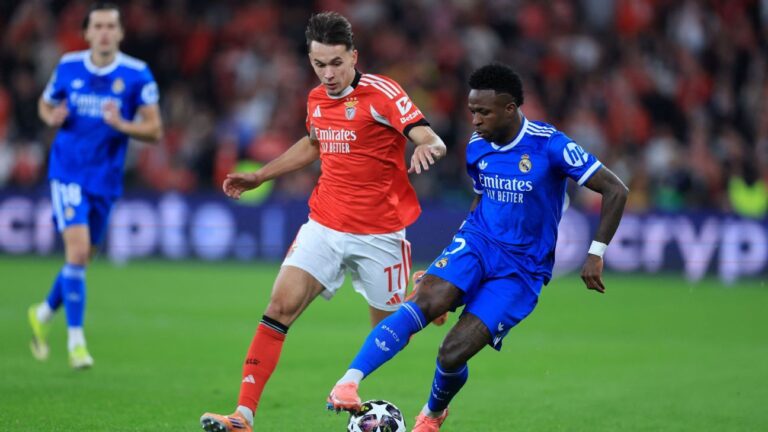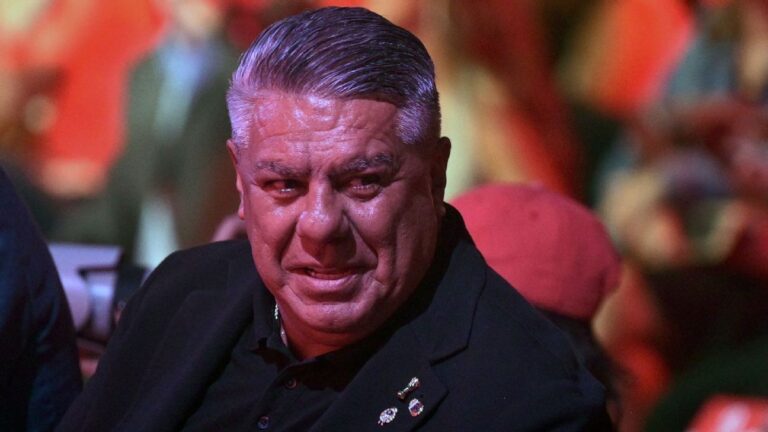For Europe’s biggest clubs and leagues, the time for transfers in 2024 has come and gone.
The transfer window closed at 11 p.m. BST (6 p.m. ET) in England and Spain on Friday, an hour earlier in France and even earlier in Italy and Germany. It remains open in select countries such as the Netherlands, Turkey and Saudi Arabia, but there’s little room for any more major deals.
All parties — clubs, players, managers and agents — will now sit back and assess. Some got their wishes and some didn’t. Some excelled in their movements over the summer, while others will be lamenting missed opportunities.
With that, let’s look back at what happened during the window and neatly sort the results into winners and losers (with a few who sit in between). Here’s who nailed it — and who didn’t.
Let’s begin with one of the most impressive but shocking spending sprees of the window, courtesy of Atlético Madrid.
After a couple of very quiet years in the market, they exploded into life this summer, spending over €180m to sign four marquee players — Julián Álvarez (€75m), Conor Gallagher (€42m), Robin Le Normand (€34.5m) and Alexander Sørloth (€32m) — plus a few depth guys.
A big clear-out paved the way, as the club finally moved João Félix on permanently to Chelsea for €52m, let Samu Omorodion (€15m) and Álvaro Morata (€13m) depart for Porto and Milan, respectively, loaned midfielder Saúl Ñíguez again, and waved goodbye to four centre-backs. It marks the start of an exciting, new dawn for Los Colchoneros.
Arsenal needed cover in defence and spent €45m to land Riccardo Calafiori, while manager Mikel Arteta also added to his midfield and landed Spain’s Euro 2024 star Mikel Merino from Real Sociedad for a fair price (€33m).
Goalkeeper David Raya was secured permanently for €30m, having spent last season on loan at the club from Brentford, and his performances so far this season suggest the club’s decision to back him as No. 1 is going to pay dividends.
Then in the closing moments, Raheem Sterling signed on loan for the season, adding much-needed depth to the wing corps and a healthy dollop of title-winning experience to the squad.
In addition, the Gunners raised funds extremely effectively, which is something they’ve not been particularly good at in recent years. They’ve made €80m-plus in moving on Eddie Nketiah, Emile Smith Rowe and Aaron Ramsdale, which could be very handy for market flexibility in the next 12 months.
It should be noted the club refrained from splashing a huge amount of cash on a striker, which many fans wanted, but they still go down as winners in this window.
In the wake of losing Kylian Mbappé to Real Madrid for nothing this summer, PSG kept their cool in the market. Rather than reflexively sign a mega-money, star-studded replacement, they instead invested in very good, young players as João Neves (€70m), Désiré Doué (€50m) and Willian Pacho (€40m) all arrived. Pacho is the oldest at 22, Doué represents another welcome French connection for the capital club to cherish, and Neves is just flat-out brilliant and has shown as much already.
PSG also successfully shifted a glut of players who don’t suit manager Luis Enrique’s style, most notably Manuel Ugarte to Manchester United for €50m. This feels a little like the turning of a page for PSG, not only in terms of eras (post-Mbappé) but in transfer strategy, too. We have to give credit when it’s due.
Juventus have completely overhauled their squad this summer in an effort to make it a better fit for new manager Thiago Motta. Aside from losing out on one target (Bologna defender Riccardo Calafiori, who joined Arsenal for €45m), they’ve nailed the brief.
Aston Villa’s Douglas Luiz, Atalanta’s Teun Koopmeiners and Nice’s Khephren Thuram will all transform the midfield; two loanees from Fiorentina, Nicolas Gonzalez and Francisco Conceição, bring fresh life to the wings; and Monza’s Michele Di Gregorio is a goalkeeper who excels with the ball at his feet, which is crucial for Motta’s style.
Admittedly, Juve had to sacrifice a little to make this happen. Matìas Soulè and Dean Huijsen lead a notable crop of younger players departing, but it puts the club in a position to challenge Inter Milan as possibly the most credible title rival for 2024-25.
It’s only fitting to mention the Saudi Pro League as our last winner, as it was the great, late beneficiaries of the market’s dying embers. Snaffling Brentford’s Ivan Toney (€47.5m) and RB Leipzig’s Mohamed Simakan (€45m) on the final day of the European window for very reasonable fees was a big win.
A handful of days previous, Manchester City defender João Cancelo had made the move to Al Hilal for €25m while, much earlier in the window, Al Ittihad paid €55m to land a top player in his prime: Aston Villa’s 25-year-old winger Moussa Diaby. The Saudi transfer window tactics have changed. The league is a much quieter, smarter force these days.
Under new ownership, it’s clear and obvious Man United have shifted their transfer strategy. They’re avoiding the temptation to patch up the squad with experienced signings and focusing on young or prime-age talents. They also adopted something of a “one in, one out” policy and set their sights on multiple targets per position, rather than set their hearts on one player they would then pay a wild amount to sign.
United have bought some good players for mostly reasonable fees, namely: Lille teenager Leny Yoro (€62m), midfielder Manuel Ugarte from PSG (€50m), Bologna striker Joshua Zirkzee (€42.5m), and Bayern Munich duo Matthijs de Ligt (€45m) and Noussair Mazraoui (€15m). The new signings suit manager Erik ten Hag’s intended style and it helps that half of them have worked with him before at Ajax. The club also finally said goodbye to a cluster of players who earn a lot but don’t play much, such as Raphaël Varane and Anthony Martial.
So why aren’t they in the winners’ column? Well, for United, this is clearly progress, but for most other clubs, this is just normal behaviour. They’ve signed pretty well but haven’t scored any major bargains who move the needle.
Liverpool’s transfer window was incredibly frustrating in parts. With fans entering the summer already fearful over what the post-Jürgen Klopp era might look like, a lack of activity in terms of incomings, plus a very public rejection from Real Sociedad defensive midfielder Martín Zubimendi, has done little to quell concerns.
But in the end, a couple of signings came. First, arguably the world’s best young goalkeeper, Giorgi Mamardashvili, for €40m before they sent him back to Valencia on loan; then second, an intriguing punt on the brilliant-but-often-injured winger Federico Chiesa, from Juventus for a measly €13m. Otherwise, the club resisted the temptation to just sign anyone. Not falling into that trap is a positive — in their search for a new No. 6, the Reds wanted top quality and refused to settle for less.
The events of this summer could still have a “losing” knock-on effect over the next year if Virgil van Dijk, Trent Alexander-Arnold and Mohamed Salah take a dim view of this inactivity and decide to leave for free next summer. Only time will tell on that one, though.
Chelsea’s remarkable, strange transfer window has confounded many. ESPN’s Ryan O’Hanlon did a wonderful job questioning the hierarchy’s strategy earlier this month, but here’s a recap:
Twelve players in, 21 out; goalkeepers galore on the books; homegrown talents such as Conor Gallagher and Trevoh Chalobah pushed out the door; Raheem Sterling exiled to Arsenal; Ben Chilwell, David Datro Fofana and Harvey Vale stranded in no-man’s land; and still no elite No. 9 striker signed, despite all the activity and interest in Napoli’s Victor Osimhen throughout the summer.
It has left fans divided and neutrals utterly perplexed. Chelsea slimmed down the squad in the end, but at one point there were more than 40 players carrying first-team status, with just under half of them training away from Enzo Maresca’s chosen crew. Just when you thought they were done, Jadon Sacho joined on deadline day on loan with an obligation to sign permanently next summer.
It’s important to not forget Chelsea have acquired a lot of talented stars here, but the aggressive stockpiling of players, combined with treatment of some of the existing crop, has led to heavy scrutiny, which is well-deserved.
It was another troubling transfer window for financially stricken Barcelona, who spent the first half of the summer publicly courting Athletic Club winger Nico Williams only to fail to sign him, then the second half of the summer frantically trying to cut enough costs to ensure they could register new €60m arrival Dani Olmo with the first team. It’s not often you see a matchday squad with an asterisk next to a player’s name.
Raising funds is an art form that continues to evade Barça. They did make €10m each from the exits of Julián Araujo and Mikayil Faye, but having to settle for loans for Clément Lenglet, Vitor Roque (who signed for only €40m in January), and Oriol Romeu means they weren’t able to book income or fully clear the wage bill. Young striker Marc Guiu leaving to join Chelsea for a miserly €6m (his release clause) must have stung a bit too, but they did at least replace him with €2m worth of Pau Víctor.
The prime casualty of the Olmo signing was Ilkay Gündogan, who departed for free back to Manchester City after just a year. As good as Olmo is in an attacking sense, there will be concern over whether Barca’s gaps in defensive midfield and centre-back will come back to bite them at some point this season.
Newcastle United fans woke up on the morning of deadline day hoping for a signing or two, as up until that point the window had been pretty stagnant. Sadly for them, no new faces arrived.
That means that not only did a summer-long pursuit of €80m-rated Crystal Palace defender Marc Guéhi fail, but no one else was signed instead. It means long-standing interest in Burnley goalkeeper James Trafford led to nothing, and an enquiry for Nottingham Forest winger Anthony Elanga fell flat. In addition to that, no new home was found for winger Miguel Almirón.
To balance the argument, there’s always something to be said for simply retaining your best players, and Newcastle achieved that in keeping Alexander Isak and Bruno Guimarães. But the club and fans alike were hoping to kick on and progress again. Sadly, that didn’t happen.
Spare a thought for the homegrown players this summer. For each one, the dream was to rise through the academy ranks, graduate to the first team and play football; many of them were representing clubs they and their families support.
Unfortunately for some, they were moved around to other clubs like pawns as Premier League clubs struggled to satisfy Profit & Sustainability Regulations.
It led to a strange mini-transfer window all of its own in late June, where players such as Omari Kellyman (€22m) and Elliot Anderson (€40m) made stunning transfers. Later in the window, Conor Gallagher (€42m) moved to Atlético Madrid in part because Chelsea needed the pure profit that academy graduates generate. It even played a part in Scott McTominay’s €30.5m transfer to Napoli, with manager Erik ten Hag lamenting “it is the [financial] rules.”




